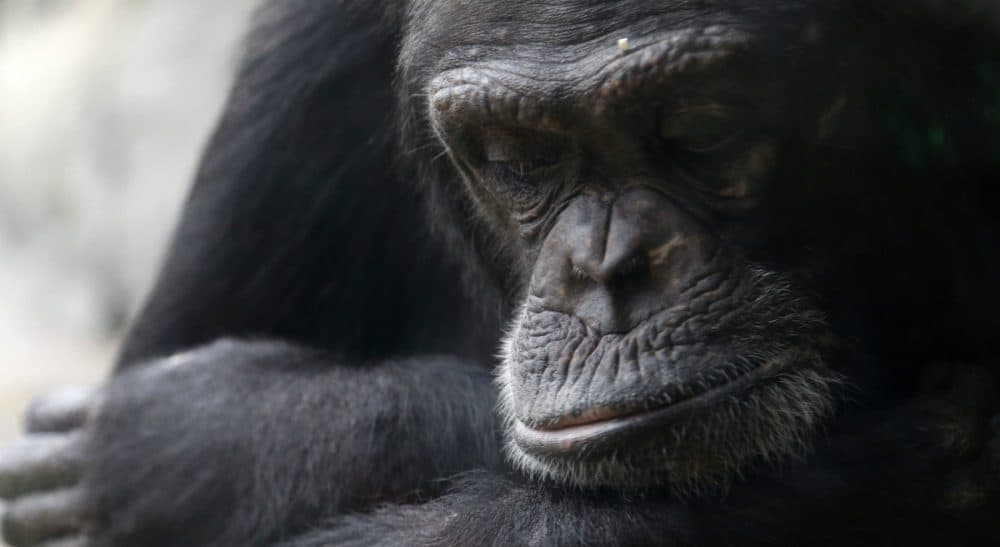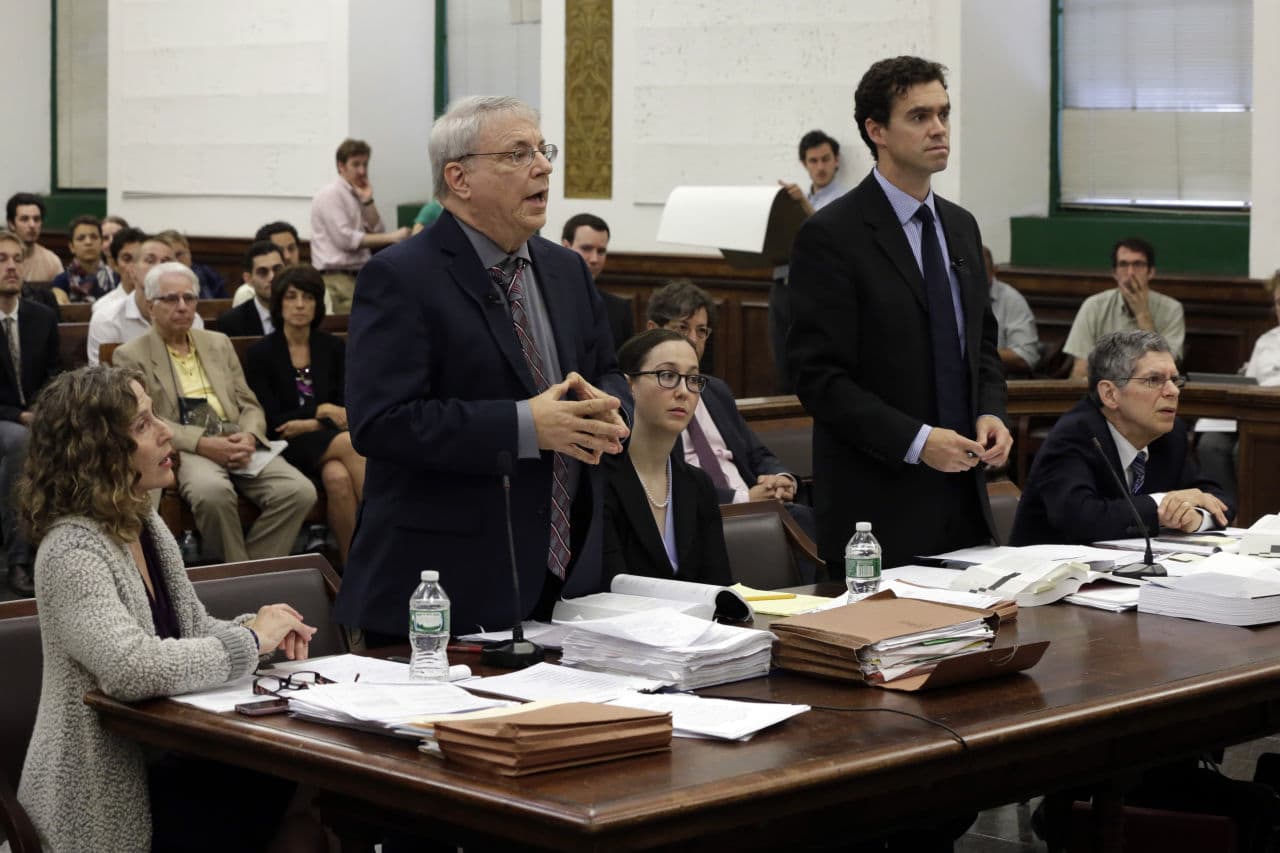Advertisement
Let My Simians Go: Should Chimps Have The Same Rights We Do?

Today’s most tantalizing civil liberties case doesn’t involve government snooping into Americans’ online communications. Important as that is, recent weeks have shone a light on a lesser-known group of rights-deprived victims whose plight demands attention.
Chimpanzees.
A New York lawsuit seeking to free two lab chimps on the grounds that they are "autonomous and self-determining beings" didn't seem so crazy in light of just-announced research that these apes are not too shabby as chefs. Skeptics properly worry about potential shackles on medical research. But the group bringing the suit deserves thanks for getting us to ponder a broader point: From entertainment to farming to some research, it's past time to rein in mindless mistreatment of animals.
from entertainment to farming to some research, it's past time to rein in mindless mistreatment of animals.
Two weeks ago, lawyer Steven Wise, president of the Florida-based Nonhuman Rights Project, argued in New York County Supreme Court that Stony Brook University should spring Hercules and Leo, chimpanzees used to study locomotion. “They’re essentially in solitary confinement,” Wise said, asking the judge to issue a writ of habeas corpus transferring the animals to a Florida sanctuary. “This is what we do to the worst human criminal.”
There’s no denying the intelligence and sensitivity of this species, or that its usefulness in researching illness has dwindled, as scientists have genetically altered mice and other animals to give them immune systems similar to humans'. Last year, the National Institutes of Health ended federal funding for research using chimpanzees and announced that the government would retire all but 50 of its 360 lab chimps to the ape equivalent of Happy Acres. (True, they won’t get their own kitchens there. But in another nod to their cognition, Harvard and Yale research has showed that chimpanzees, in The New York Times’ words, “have the patience and foresight to resist eating raw food and to place it in a device meant to appear, at least to the chimps, to cook it.”)

The New York attorney general’s office, representing Stony Brook, argued that granting chimps the legal personhood Wise seeks would be unprecedented and could unleash a slew of rights for a slew of other animals. The first objection is easily dismissed. As Wise pointed out, the never-been-done-before rationale would have denied human rights to humans who originally weren’t deemed such — blacks and Native Americans. As for granting human rights to non-humans, that’s been done for corporations and even ships. The Boston Globe noted that, since the country’s early years, courts have considered ships as people to facilitate accident cases in which a vessel’s owner isn’t present.
Would freedom for Hercules and Leo force open the lab cages for other animals that are essential for research? After all, people come first in the drive for cures, as even philosopher Peter Singer, godfather of the animal rights movement, agrees. At least for now, monkeys, to cite an example, might be needed to test drugs against Ebola, which has killed more than 11,000 Africans in the last year-plus.
Advertisement
Wise brushed off the slippery slope argument, saying the science behind chimps’ autonomy puts only a limited number of animals in the same league: great apes, elephants, some types of whales and dolphins, and African gray parrots. (This would be a relief to veterinarians, some of whom worry that, in our litigious society, Rover could get personhood rights, potentially exposing his doctors to malpractice suits.) Wise probably is right that courts would be gun-shy about crimping necessary research, given how slow humanity has been to surrender unnecessary exploitation of creation. Witness this video of our continued, subsidized support of animal cruelty in industrialized food production, though I’d advise not witnessing it while you eat. Wise says that winning his case wouldn’t imperil factory farming of animals. That’s sad.
in contemplating the new idea of animal autonomy, an old cliché is in order: we shouldn’t let the perfect be the enemy of the good.
I’ll show my hand: I’m vegetarian, though I don’t expect carnivores to change their diets; I’d just favor smaller-scale farms on which animals were raised and slaughtered as humanely as possible. I’d be delighted, of course, by the demise of meat-eating predicted by one pundit. I cheer Ringling Bros.'s plans to eliminate elephant acts and customer boycotts of SeaWorld over allegations of mistreatment of its orcas.
Meanwhile, animal welfare is an area that demands we all show some humility. Wise himself has written that in modern life, it’s impossible to avoid animal-derived products; they’re used in tires, plastic, contraceptive cream, ink, soap and paper. We can’t be perfect.
Yet in contemplating the new idea of animal autonomy, an old cliché is in order: We shouldn’t let the perfect be the enemy of the good.
